Discover the Women of the Hall
These are the Inductees of the National Women’s Hall of Fame. Select any of the women to discover their stories and learn how they have influenced other women and this country.
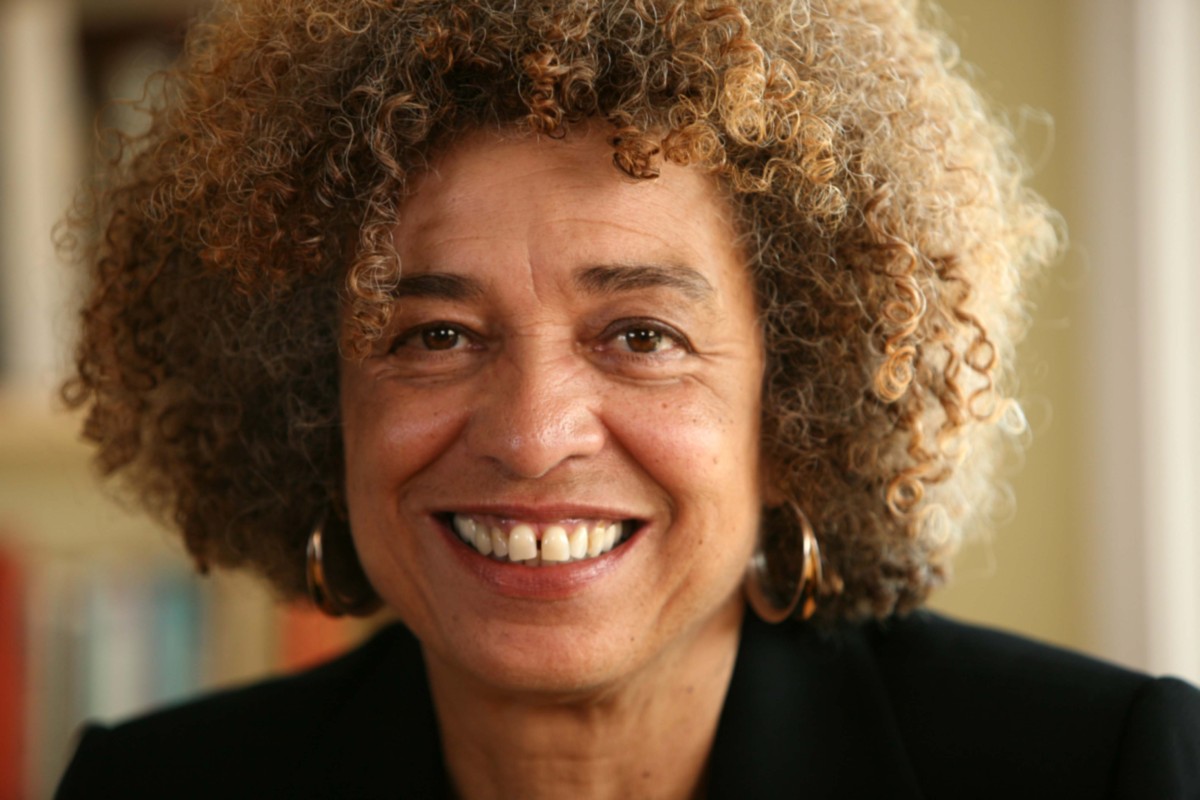
Angela Davis
Dr. Angela Davis is a prominent political activist, academic scholar, and author of numerous groundbreaking works. Well-known for her emphasis on the ways that justice is “indivisible,” Dr. Davis has spent a lifetime working on civil rights and women’s rights, against the prison industrial complex and for international justice. Dr. Davis’ teaching career has taken her to numerous college campuses across the United States, and she has also given lectures in Europe, Africa, Asia, Australia, and South America. She spent 15 years at the University of California Santa Cruz where she is now Distinguished Professor Emerita of History of Consciousness (an interdisciplinary Ph.D program) and of Feminist Studies. Dr. Davis’ works have emboldened generations of students to critically address and respond actively to contemporary issues of injustice. Her powerful voice remains instructive today.
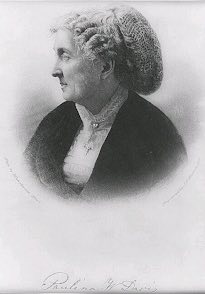
Paulina Kellogg Wright Davis
Born and raised in western New York, Davis headed the committee that organized the first National Women’s Rights Convention in Worcester, MA in 1850. She helped found the New England Women’s Suffrage Association and established Una, one of the first women’s rights newspapers.

Dorothy Day
Widely considered one of the great Catholic lay leaders of the 20th century. As co-founder of The Catholic Worker, Day spearheaded the movement that continues to promote pacifism, civil rights, and relief for the homeless.
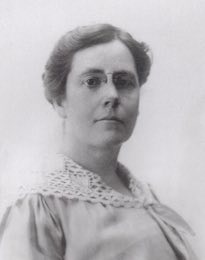
Marian de Forest
Founder of Zonta (1919, Buffalo, NY), a worldwide organization of women business and professional leaders dedicated to improving the legal, political, and economic status of women. Membership now runs 35,000 with 1,214 clubs in 68 countries.
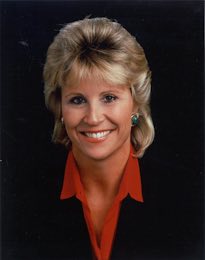
Donna de Varona
In 1960, at the age of 13, de Varona became the youngest member of a U.S. Olympic swim team. Just four years later, she won gold medals in the 400 IM and 400 Freestyle Relay at the Tokyo Olympics. She went on to set 18 world records in her career, and was the first President of the Women’s Sports Foundation.
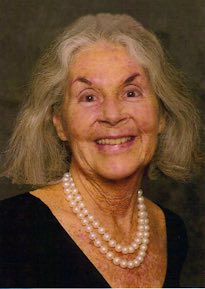
Karen DeCrow
A nationally recognized attorney, author and activist, Karen DeCrow is one of the most celebrated leaders of the women’s movement. From 1974-1977, she served as the National President of the National Organization for Women (NOW), where she was instrumental in obtaining significant legislative and legal gains and tirelessly advocated on behalf of the Equal Rights Amendment (ERA). DeCrow has written numerous books and articles and has lectured throughout the world on topics such as law, gender equality, and politics. In 1970, she served as National Coordinator of the Women’s Strike, and in 1988 she co-founded World Women Watch.

Angela Davis
Dr. Angela Davis is a prominent political activist, academic scholar, and author of numerous groundbreaking works. Well-known for her emphasis on the ways that justice is “indivisible,” Dr. Davis has spent a lifetime working on civil rights and women’s rights, against the prison industrial complex and for international justice. Dr. Davis’ teaching career has taken her to numerous college campuses across the United States, and she has also given lectures in Europe, Africa, Asia, Australia, and South America. She spent 15 years at the University of California Santa Cruz where she is now Distinguished Professor Emerita of History of Consciousness (an interdisciplinary Ph.D program) and of Feminist Studies. Dr. Davis’ works have emboldened generations of students to critically address and respond actively to contemporary issues of injustice. Her powerful voice remains instructive today.

Paulina Kellogg Wright Davis
Born and raised in western New York, Davis headed the committee that organized the first National Women’s Rights Convention in Worcester, MA in 1850. She helped found the New England Women’s Suffrage Association and established Una, one of the first women’s rights newspapers.

Dorothy Day
Widely considered one of the great Catholic lay leaders of the 20th century. As co-founder of The Catholic Worker, Day spearheaded the movement that continues to promote pacifism, civil rights, and relief for the homeless.

Marian de Forest
Founder of Zonta (1919, Buffalo, NY), a worldwide organization of women business and professional leaders dedicated to improving the legal, political, and economic status of women. Membership now runs 35,000 with 1,214 clubs in 68 countries.

Donna de Varona
In 1960, at the age of 13, de Varona became the youngest member of a U.S. Olympic swim team. Just four years later, she won gold medals in the 400 IM and 400 Freestyle Relay at the Tokyo Olympics. She went on to set 18 world records in her career, and was the first President of the Women’s Sports Foundation.

Karen DeCrow
A nationally recognized attorney, author and activist, Karen DeCrow is one of the most celebrated leaders of the women’s movement. From 1974-1977, she served as the National President of the National Organization for Women (NOW), where she was instrumental in obtaining significant legislative and legal gains and tirelessly advocated on behalf of the Equal Rights Amendment (ERA). DeCrow has written numerous books and articles and has lectured throughout the world on topics such as law, gender equality, and politics. In 1970, she served as National Coordinator of the Women’s Strike, and in 1988 she co-founded World Women Watch.
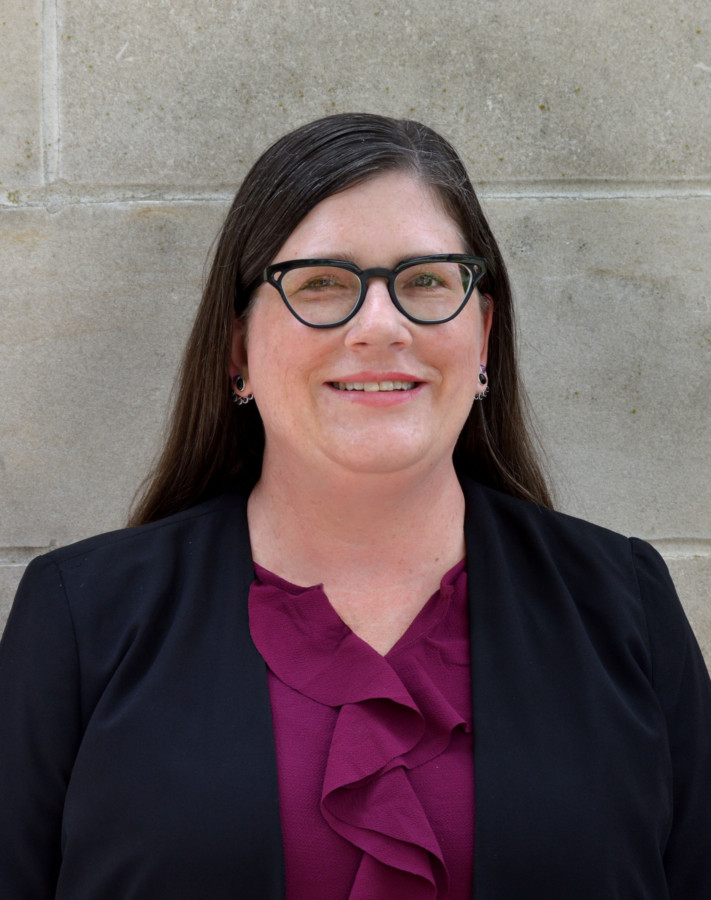
Sarah Deer
A citizen of the Muscogee (Creek) Nation of Oklahoma, Sarah Deer is a professor at the University of Kansas and an engaged activist for indigenous women. Ending violence against women is her life’s goal. A lawyer by trade and an advocate in practice, Deer’s scholarship and public policy work focuses on the intersection of federal Indian law and victims’ rights, using indigenous feminist principles as a framework. Her work to end violence against Native women has received national recognition from the American Bar Association and the Department of Justice as well as a MacArthur fellowship.
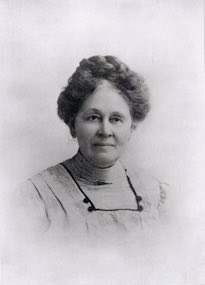
Emma Smith DeVoe
President of the Washington Equal Suffrage Association, successfully ran the campaign that resulted in Washington becoming the first state in the 20th century to grant full enfranchisement to women in 1910, a full decade before passage of the 19th Amendment. DeVoe established the first national organization of voting women, which eventually merged with the National League of Women Voters, leaving an invaluable legacy about the importance of the educated use of the franchise.
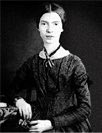
Emily Dickinson
One of the world’s greatest poets. A New England woman who spent much of her life in one small community, her world vision and innovative style has had a lasting impact on literature.

Dorothea Dix
One of the nation’s earliest and most effective advocates for better care of the mentally ill. When Dix saw that such people were badly treated in institutions, she lobbied nationwide for humane treatment and reform.
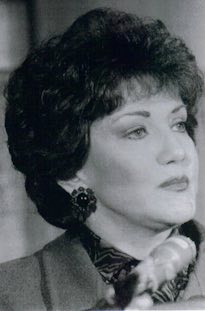
Elizabeth Hanford Dole
First woman to hold two cabinet positions as Secretary of Transportation under Ronald Reagan and Secretary of Labor for President George Bush. Dole later became President of the American Red Cross.
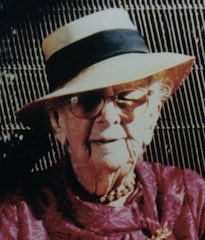
Marjory Stoneman Douglas
A journalist with the Miami News Record, she was an active leader in the Florida suffrage movement and an environmentalist credited with saving the Everglades as a national resource. Douglas authored over ten books and several plays, including The Everglades: River of Grass. After receiving the Presidential Medal of Freedom in 1993 at the age of 103, she remained an active and influential environmentalist to her death.

Sarah Deer
A citizen of the Muscogee (Creek) Nation of Oklahoma, Sarah Deer is a professor at the University of Kansas and an engaged activist for indigenous women. Ending violence against women is her life’s goal. A lawyer by trade and an advocate in practice, Deer’s scholarship and public policy work focuses on the intersection of federal Indian law and victims’ rights, using indigenous feminist principles as a framework. Her work to end violence against Native women has received national recognition from the American Bar Association and the Department of Justice as well as a MacArthur fellowship.

Emma Smith DeVoe
President of the Washington Equal Suffrage Association, successfully ran the campaign that resulted in Washington becoming the first state in the 20th century to grant full enfranchisement to women in 1910, a full decade before passage of the 19th Amendment. DeVoe established the first national organization of voting women, which eventually merged with the National League of Women Voters, leaving an invaluable legacy about the importance of the educated use of the franchise.

Emily Dickinson
One of the world’s greatest poets. A New England woman who spent much of her life in one small community, her world vision and innovative style has had a lasting impact on literature.

Dorothea Dix
One of the nation’s earliest and most effective advocates for better care of the mentally ill. When Dix saw that such people were badly treated in institutions, she lobbied nationwide for humane treatment and reform.

Elizabeth Hanford Dole
First woman to hold two cabinet positions as Secretary of Transportation under Ronald Reagan and Secretary of Labor for President George Bush. Dole later became President of the American Red Cross.

Marjory Stoneman Douglas
A journalist with the Miami News Record, she was an active leader in the Florida suffrage movement and an environmentalist credited with saving the Everglades as a national resource. Douglas authored over ten books and several plays, including The Everglades: River of Grass. After receiving the Presidential Medal of Freedom in 1993 at the age of 103, she remained an active and influential environmentalist to her death.
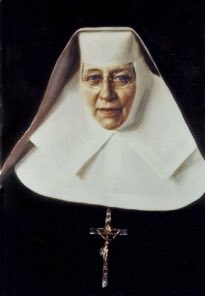
St. Katharine Drexel
A missionary who dedicated her life and fortune to aid Native Americans and African Americans, Saint Katharine Drexel is only the second recognized American-born saint. In 1891, Saint Katharine founded the Sisters of the Blessed Sacrament, a religious order that today remains devoted to the education and care of Native Americans and African Americans. During her lifetime, Saint Katharine and her order founded more than sixty missions and schools, including Xavier University of Louisiana. Saint Katharine was beatified in 1988 and canonized in 2000.
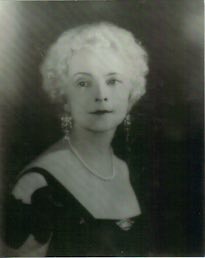
Anne Dallas Dudley
Political activist central to the campaign to pass the 19th Amendment to the U.S. Constitution. Serving as National Campaign Director as well as in her home state of Tennessee, she led a march of 2,000 women in the South’s first suffrage parade in 1914.
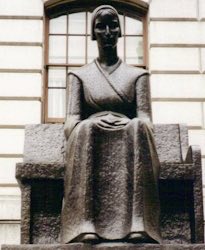
Mary Barret Dyer
Disenfranchised and banished from the Massachusetts Bay Colony along with Anne Hutchinson, she moved back to England, where she became a protégé of George Fox, the founder of Quakerism. Returning to Boston, she was arrested, imprisoned and expelled for preaching the Quaker faith. Returning to Boston again and again, she stood beside other condemned Quakers and finally was herself arrested and hanged. Her martyr’s death contributed to the move for religious tolerance in the colonies.

St. Katharine Drexel
A missionary who dedicated her life and fortune to aid Native Americans and African Americans, Saint Katharine Drexel is only the second recognized American-born saint. In 1891, Saint Katharine founded the Sisters of the Blessed Sacrament, a religious order that today remains devoted to the education and care of Native Americans and African Americans. During her lifetime, Saint Katharine and her order founded more than sixty missions and schools, including Xavier University of Louisiana. Saint Katharine was beatified in 1988 and canonized in 2000.

Anne Dallas Dudley
Political activist central to the campaign to pass the 19th Amendment to the U.S. Constitution. Serving as National Campaign Director as well as in her home state of Tennessee, she led a march of 2,000 women in the South’s first suffrage parade in 1914.

Mary Barret Dyer
Disenfranchised and banished from the Massachusetts Bay Colony along with Anne Hutchinson, she moved back to England, where she became a protégé of George Fox, the founder of Quakerism. Returning to Boston, she was arrested, imprisoned and expelled for preaching the Quaker faith. Returning to Boston again and again, she stood beside other condemned Quakers and finally was herself arrested and hanged. Her martyr’s death contributed to the move for religious tolerance in the colonies.
